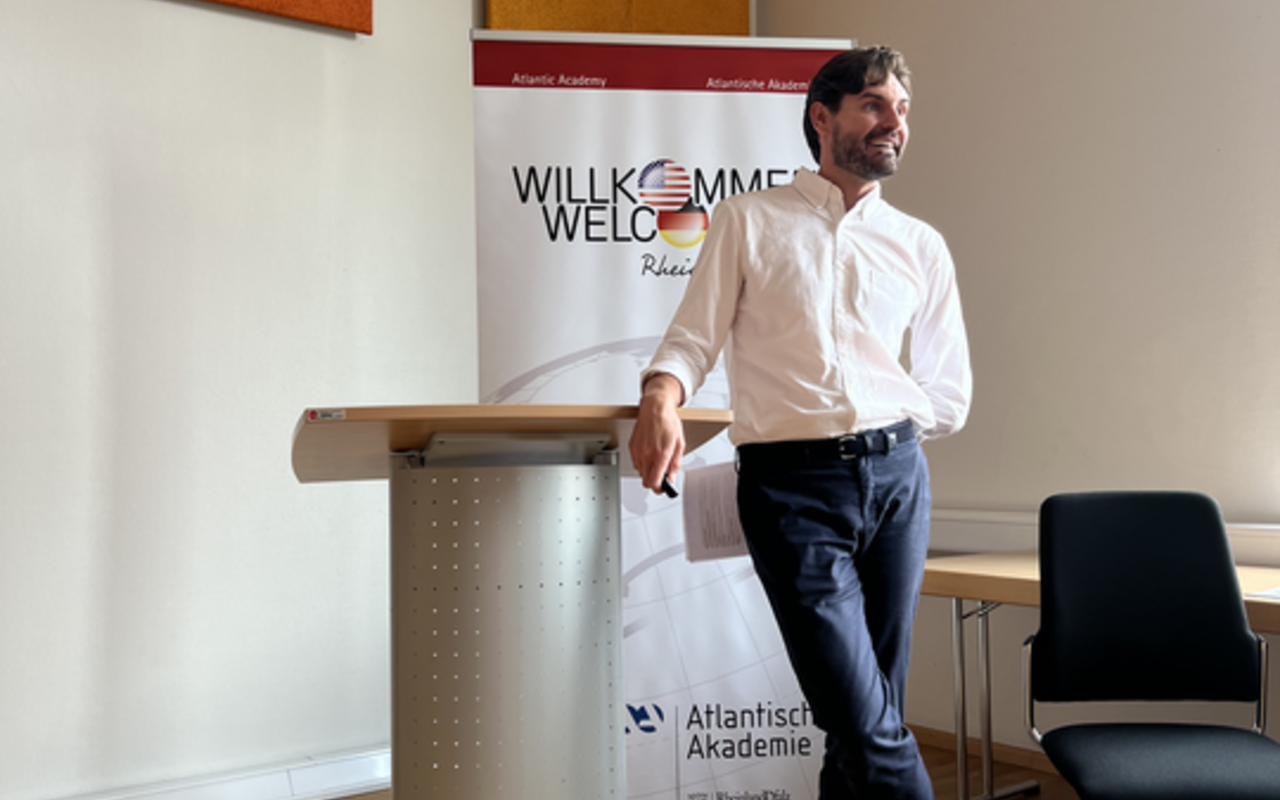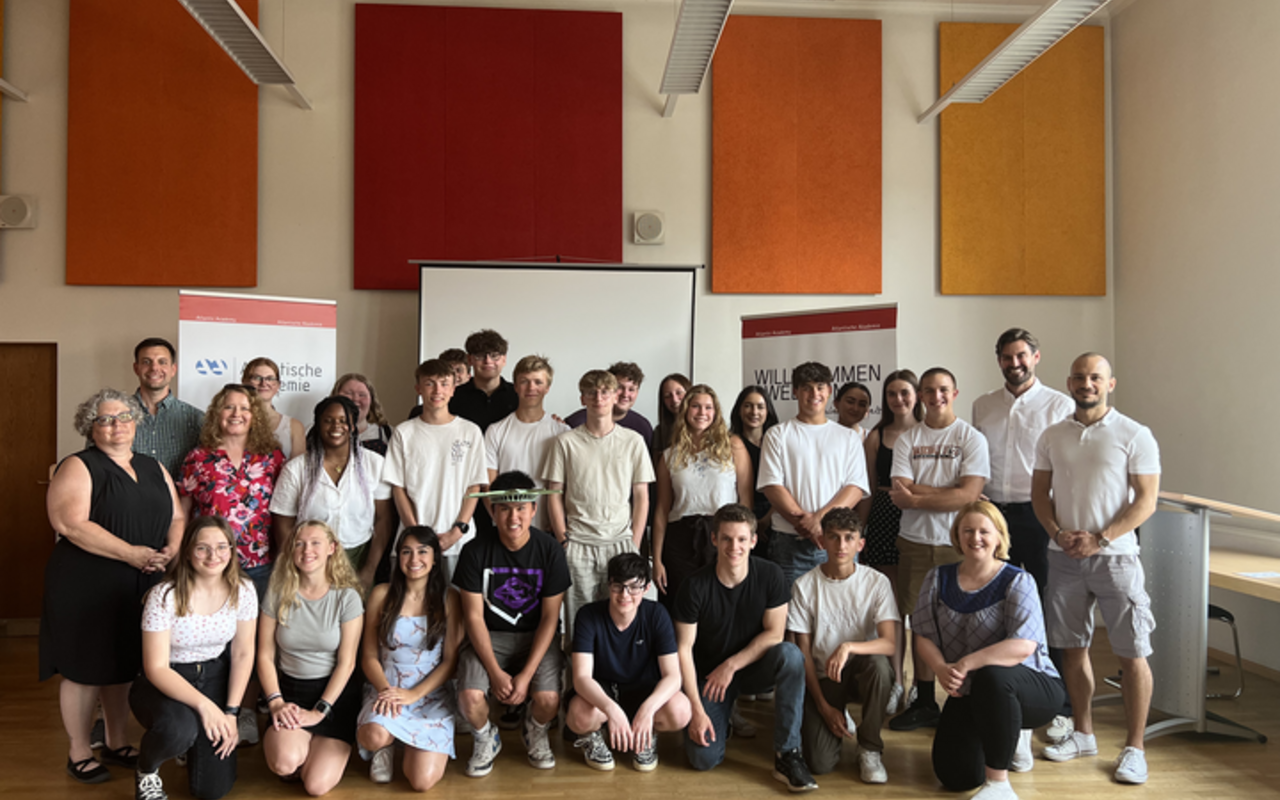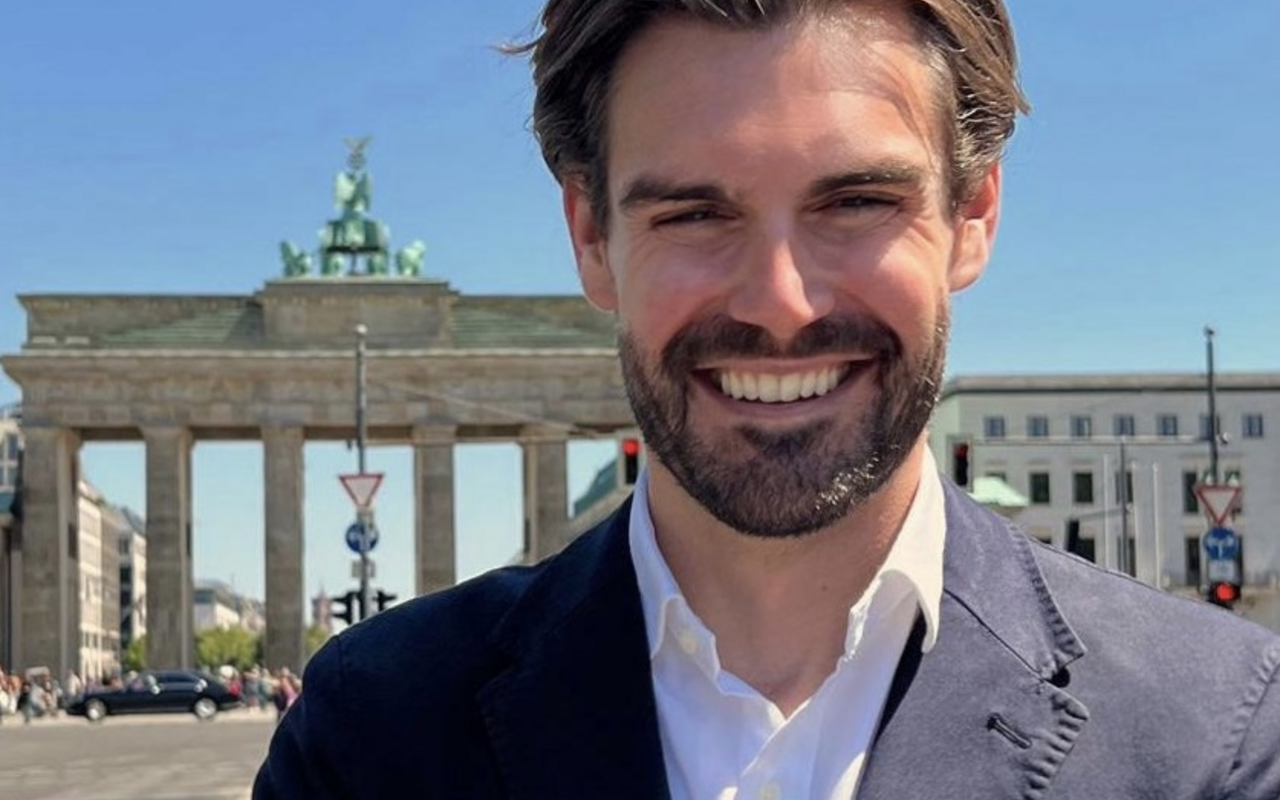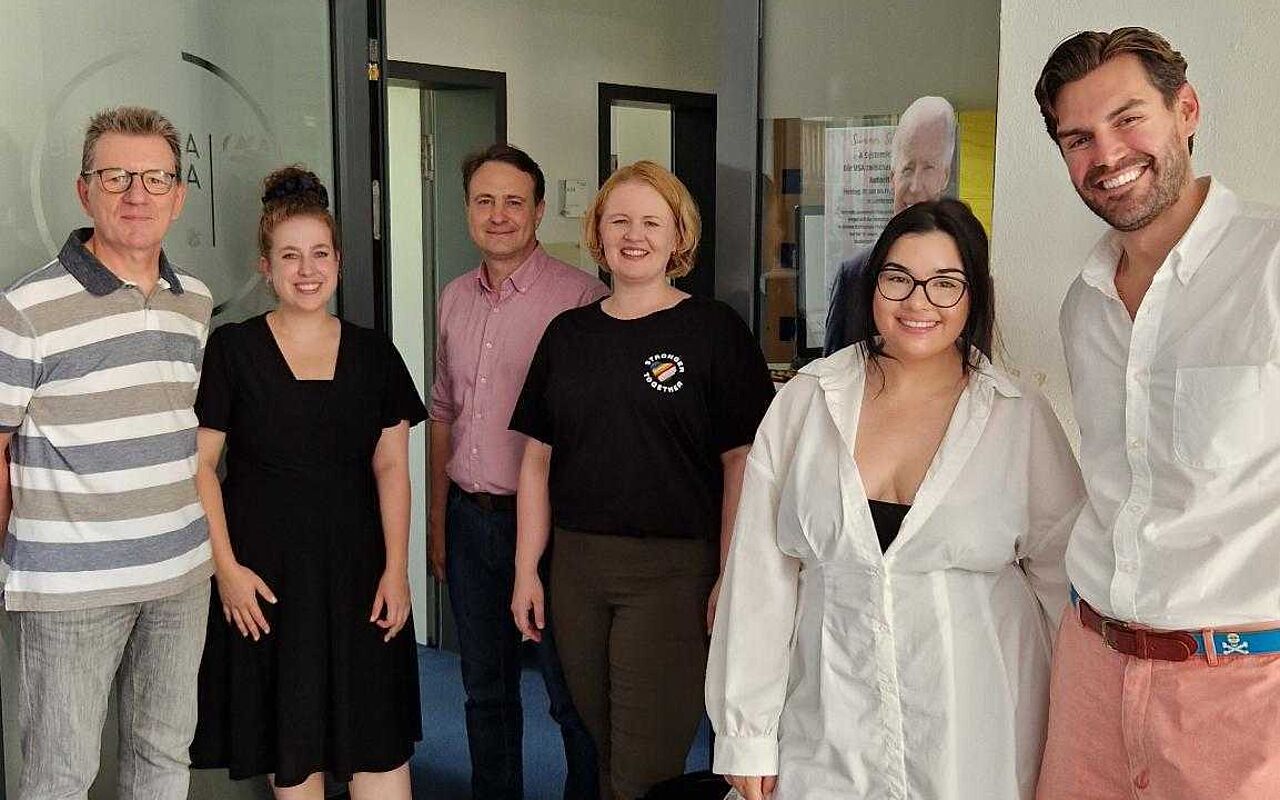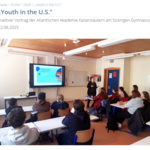By Jason Hosner, BMW Center for German and European Studies, Georgetown University, Class of 2024
The Rheinland-Pfalz Transatlantic Ambassador Internship Program (TAIP) provides prospective U.S. diplomats and transatlantic policy makers an opportunity to gain practical experience with actors who are responsible for cultivating and upholding successful U.S. and German partnerships on the federal, state, and local levels. When I received the news of my acceptance to the program, I was thrilled. I must admit, as an American who has spent nearly half of his life in Germany, I did enter the TAIP with some preconceived notions about the effect of interpersonal relationships on the transatlantic relationship. Now though, at the end of my tenure as intern, I can only further underline the immense power and influence of interactions between individuals, especially on the local level, on the U.S. and German partnership. The TAIP was, for me, such an enriching portion of my academic experience, as it offered me a categorically unique chance to work in the field of diplomacy and policy making with people on the local and state level, on both the US and German side. The internship, with three separate but intertwining workstations, provided diverse exposure and allowed me to gain a well-rounded and all-encompassing perspective on topics pertaining to the U.S.—German alliance such as local level policy making and public diplomacy, state level foreign diplomacy and legislation, and U.S. military presence, engagement, and action in Europe.
First part of the internship: The Atlantic Academy
My internship began at the Atlantische Akademie of Rheinland Pfalz (AA)—a leading transatlantically focused think tank and NGO located in the heart of the Kaiserslautern Military Community (KMC). The KMC is an area which includes Ramstein Air Base and various other U.S. military installations and is home to roughly 50,000 U.S. Americans. The Atlantische Akademie is an institution with a Germany-wide reach, and it cultivates positive U.S. and German relations by providing information on transatlantic issues to policy makers, educational institutions, and to the general public. The AA is successful because it encourages active intercultural exchange through its programing, which showcases leading thinkers in international relations, and thanks to its initiatives, such as Willkommen in Rheinland-Pfalz, a project that encourages personal interaction between members of the U.S. military community with members of the host nation community. I was thrilled to have the opportunity to assist the AA in conducting research for upcoming programing, in welcoming US and German students to Germany for a summer exchange, and in taking part in three-day symposium which focused on the American political system and assessing the current state of US democracy.
Second part of the internship: State Chancellery of Rheinland-Pfalz
The second station of the TAIP was at the Office of Bilateral Foreign Relations in the State Chancellery of Rheinland-Pfalz. While here, I drafted briefings for the state’s Minister President Malu Dreyer, and her staff, for meetings with foreign dignitaries. I also conducted research and assembled a delegation portfolio for the Minister President’s upcoming trip to Japan. Interestingly, due to the nature of Germany’s federalist system, individual state governments independently cultivate international relationships and partnerships with foreign nations. To this point, the state of Rheinland-Pfalz is also particularly mindful of ensuring a continued successful relationship with the United States due to presence of the U.S. Forces in the state, and the associated security and positive economic impact U.S. presence brings there. My experience at the chancellery allowed me to engage with diplomacy on the state level, and to experience legislation making focused on the needs of the constituents of Rhineland-Pfalz and their U.S. guests and partners.
The third and final part: United States Foreign Liaison Office (USFLO) Rheinland-Pfalz
The third station of the TAIP was with the United States Foreign Liaison Office (USFLO) Rheinland-Pfalz. Here, I was able to be a part of diplomacy in the politico-military realm. I had the opportunity to meet with senior leaders and policy makers in the U.S. Department of Defense at the U.S. Army Headquarters of Europe and Africa in Wiesbaden and Ramstein and with the Consul General and other top State Department officials at the U.S. Consulate in Frankfurt. During my tenure at USFLO I became well acquainted with relevant treaties and agreements under which the United States operates under in Germany, and I prepared briefing information pertaining to the state government of Rheinland-Pfalz for U.S. Department of Defense officials. I was also introduced to U.S. military exercises, trainings, and equipment. This all was invaluable exposure to the U.S. presence and engagement in Rheinland-Pfalz and was the perfect opportunity to experience U.S.—German military cooperation firsthand.
A rewarding experience
Overall, the Transatlantic Ambassador Internship Program allowed me to gain professional experience in transatlantic diplomacy and to learn from esteemed academics and practitioners of the field on multiple different levels. The entire experience has reiterated my passion for international relations and for promoting a successful U.S. and German partnership built on the foundation of shared ideals of democracy, freedom, and security. The TAIP has given me valuable insight into policy making, legislation, and diplomatic efforts from the ground up, and it has provided me with research which is useful for my studies. All these experiences have only solidified my intent for a career in diplomacy. I am grateful to have had the opportunity to spend the summer with institutions and inspiring individuals who are committed to promoting, cultivating, and maintaining positive U.S. and German relations. In the end the TAIP validated my preconceived notion; it is indeed people-to-people diplomacy that makes all the difference.


